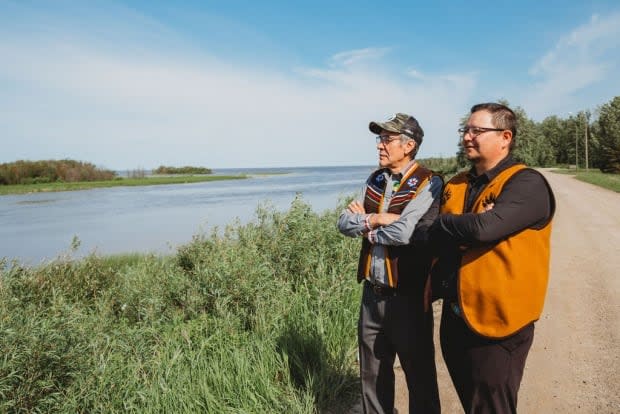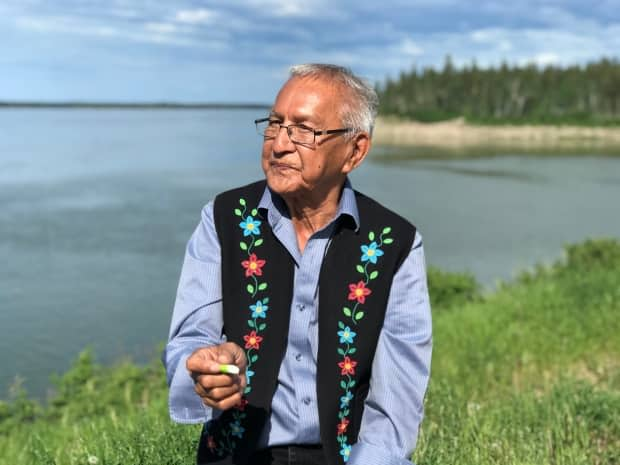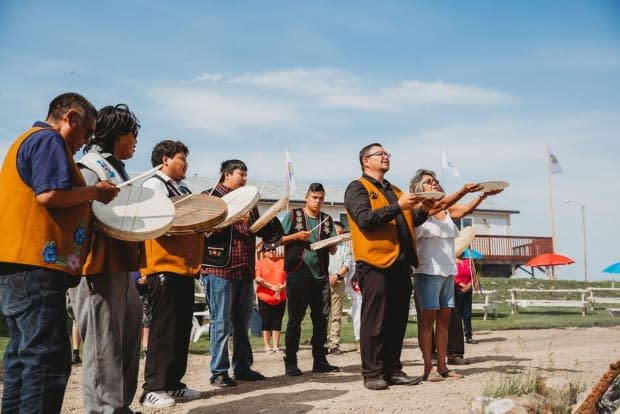All our coverage so far of the 100th anniversary of Treaty 11

The summer of 2021 marks 100 years since a treaty party traveled up the Mackenzie River signing the last of Canada's numbered treaties with the Dene, Tłı̨chǫ and Gwich'in communities of the N.W.T.
"In the words of Tłı̨chǫ Elder James Wah-Shee, 'the treaty was signed when it was discovered that our land was more valuable than our friendship,'" writes the CBC's John Last in this in depth look at the history and legacy of Treaty 11.
The CBC's Hannah Paulson took a similar look at the treaty's legacy in the Dehcho.
And Anna Desmarais spoke to descendents of treaty signatories in the Sahtu.

We've covered community celebrations in Fort Providence, Hay River, Fort Simpson, Fort McPherson and Tulita.
We wrote about how the Tłı̨chǫ government, Tłı̨chǫ citizens and the Prince of Wales Northern Heritage Centre worked together on an exhibit marking Treaty 11, and some of the pieces on display.
And we wrote about the museum's plans to put the Treaty 11 document on display this fall — an important moment, because for decades after the signing, most people subject to Treaty 11 didn't know what the text said.
Celebrations and events continue all summer.


